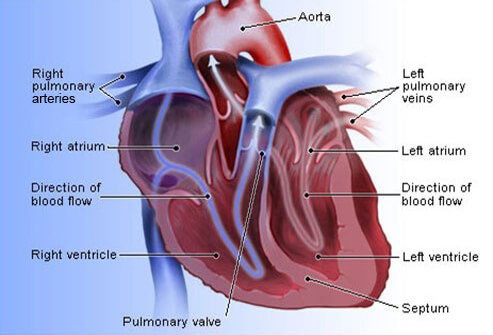
Diagnosed with Cancer? Your two greatest challenges are understanding cancer and understanding possible side effects from chemo and radiation. Knowledge is Power!
Learn about conventional, complementary, and integrative therapies.
Dealing with treatment side effects? Learn about evidence-based therapies to alleviate your symptoms.
Click the orange button to the right to learn more.
- You are here:
- Home »
- Blog »
- side effects ID and prevention »
- Chemotherapy-induced Cardiomyopathy Risk
Chemotherapy-induced Cardiomyopathy Risk

“Genotype, along with cumulative chemotherapy dosage and traditional cardiovascular risk factors improves identification of cancer patients at highest risk for Chemotherapy-induced Cardiomyopathy (CCM).”
Chemotherapy-induced cardiomyopathy risk is important to figure out if you are about to undergo one of the many cardiotoxic chemo regimens that are FDA approved “safe and effective.” The problem with the study linked and excerpted below uses words like:
- Associated
- Hypothesized
- Contribute
- Susceptibility
Meaning, using your genes to figure out your chemotherapy-induced cardiomyopathy risk is a guess at best. In my experience, you are better off undergoing specific heart-healthy therapies before, during and after you undergo cardiotoxic chemo regimens.
I was diagnosed with chemotherapy-induced cardiomyopathy fulling 15 years after I underwent these drugs. All were FDA approved “safe and effective.
What non-conventional therapies reduce your risk of chemotherapy-induced cardiomyopathy?
- Coenzyme Q10 (CoQ10) supplementation: CoQ10 is an antioxidant that may help protect the heart from damage caused by chemotherapy drugs. Several studies suggest that CoQ10 supplementation may reduce the risk of cardiomyopathy in cancer patients undergoing chemotherapy.
- Omega-3 fatty acids: Omega-3 fatty acids have anti-inflammatory properties and may help protect the heart from chemotherapy-induced damage. Fish oil supplements, which are rich in omega-3 fatty acids, have been studied for their potential cardioprotective effects in cancer patients.
- Acupuncture: Acupuncture has been used to manage various side effects of chemotherapy, including nausea, pain, and fatigue. Some research suggests that acupuncture may also help protect the heart from chemotherapy-induced damage, although more studies are needed to confirm its effectiveness for this purpose.
- Mind-body therapies: Stress-reducing techniques such as meditation, yoga, and guided imagery may help support cardiovascular health during chemotherapy. These therapies can help reduce stress and anxiety, which are known risk factors for heart disease.
- Exercise: Regular exercise has numerous benefits for cardiovascular health and may help reduce the risk of cardiomyopathy in cancer patients undergoing chemotherapy. However, it’s essential to consult with a healthcare provider before starting an exercise program during cancer treatment, as some precautions may be necessary.
Which chemotherapy regimens are known to be cardiotoxic?
Some of the chemotherapy regimens known to be cardiotoxic include:
- Anthracyclines: Drugs like doxorubicin, daunorubicin, and epirubicin are commonly used in cancer treatment but are notorious for their cardiotoxic effects, particularly leading to cardiomyopathy and congestive heart failure.
- Trastuzumab (Herceptin): While effective in treating HER2-positive breast cancer, trastuzumab can lead to cardiotoxicity, including decreased heart function and heart failure.
- Tyrosine kinase inhibitors (TKIs): Certain TKIs used in cancer treatment, such as sunitinib and dasatinib, can cause hypertension, left ventricular dysfunction, and even heart failure.
- Proteasome inhibitors: Drugs like bortezomib, used in the treatment of multiple myeloma, can induce or exacerbate heart failure.
- Immune checkpoint inhibitors: While not directly cardiotoxic, immune checkpoint inhibitors like pembrolizumab and nivolumab can lead to immune-related adverse events, including myocarditis and pericarditis.
- Anti-microtubule agents: Drugs like paclitaxel and docetaxel can cause various cardiovascular side effects, including arrhythmias, ischemia, and heart failure.
- Fluoropyrimidines: Chemotherapeutic agents like 5-fluorouracil (5-FU) and capecitabine are associated with cardiotoxicity, including angina, arrhythmias, and myocardial infarction.
I certainly think it would be worthwhile to talk to your oncologist about genetic testing for your risk of CIC. However, I encourage you to also undergo the non-conventional therapies listed above cited to reduce your risk of CIC.
Have you been diagnosed with cancer? What type? What stage? If you’d like to learn more about managing possible short, long-term and late stage side effects send me an email- David.PeopleBeatingCancer@gmail.com
Good luck,
David Emerson
- Cancer Survivor
- Cancer Coach
- Director PeopleBeatingCancer
Genetic Variants Associated with Cancer Therapy-Induced Cardiomyopathy
“Background: Cancer therapy-induced cardiomyopathy (CCM) is associated with cumulative drug exposures and pre-existing cardiovascular disorders. These parameters incompletely account for substantial inter-individual susceptibility to CCM. We hypothesized that rare variants in cardiomyopathy genes contribute to CCM…
Cardiomyopathy genes, including nine pre-specified genes were sequenced. The prevalence of rare variants was compared between CCM cohorts and The Cancer Genome Atlas (TCGA) participants (n=2053), healthy volunteers (n=445), and ancestry-matched reference population. Clinical characteristics and outcomes were assessed, stratified by genotypes. A prevalent Chemotherapy-induced Cardiomyopathy (CCM) genotype was modeled in anthracycline-treated mice...
Adult CCM patients with TTNtv experienced more heart failure and atrial fibrillation (p=0.003) and impaired myocardial recovery (p=0.03) than those without. Consistent with human data, anthracycline-treated TTNtv mice and isolated TTNtv cardiomyocytes showed sustained contractile dysfunction unlike wildtype (p=0.0004 and p<0.002, respectively).
Conclusions: Unrecognized rare variants in cardiomyopathy-associated genes, particularly TTNtv, increased the risk for CCM in children and adults, and adverse cardiac events in adults.
Genotype, along with cumulative chemotherapy dosage and traditional cardiovascular risk factors improves identification of cancer patients at highest risk for CCM.”


